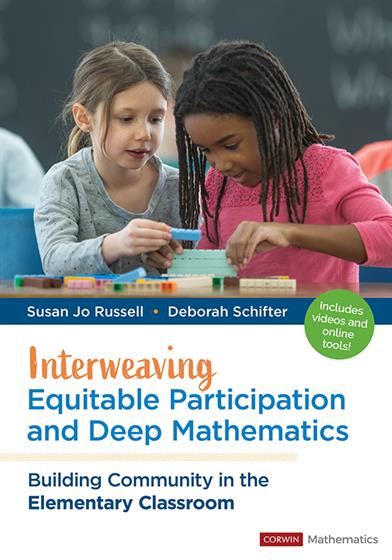Hands-on, Practical Guidance for Educators
From math,
literacy, science, equity, multilingual learners, and SEL, to assessment, school counseling,
and education leadership, our books are research-based and authored by experts
on topics most relevant to what educators are facing today.

Interweaving Equitable Participation and Deep Mathematics
Building Community in the Elementary Classroom
A powerful resource that fosters a true sense of community, this book focuses on a dual commitment: to teaching deep and challenging mathematics and to equitable participation for all students in the classroom.
Product Details
- Grade Level: PreK-12
- ISBN: 9781071947739
- Published By: Corwin
- Series: Corwin Mathematics Series
- Year: 2024
- Page Count: 256
- Publication date: November 12, 2024
Review Copies
Review copies may be requested by individuals planning to purchase 10 or more copies for a team or considering a book for adoption in a higher ed course. Request review copy



